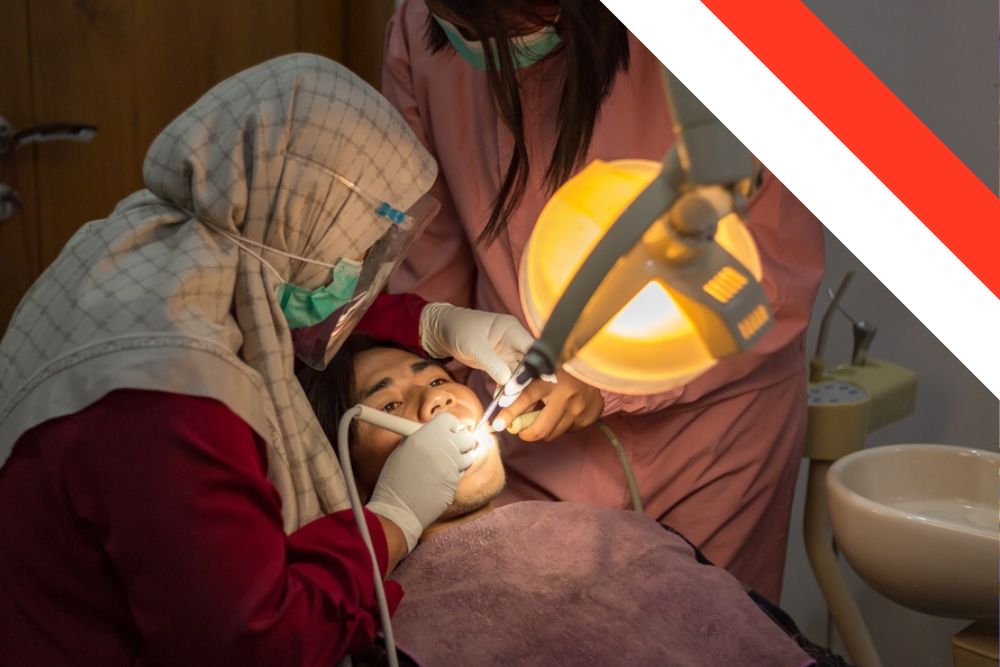The death of Nira Pranita Asih after a tooth extraction in Ngawi raises concerns about dental procedure safety in Asia, prompting an investigation into potential malpractice.
Nira Pranita Asih, a resident of Gendingan Village in Ngawi, East Java, experienced severe complications following the extraction of a molar on 28 December 2023. She consulted a dentist on 20 December 2023 and subsequently underwent the procedure at an unnamed dental clinic. Tragically, after the extraction, Nira developed an infection leading to serious health issues.
Timeline of Infection and Health Complications
Nira’s condition deteriorated post-extraction due to a severe infection. On 30 February 2024 (there appears to be an error in the date), she underwent a thoracotomy to address respiratory complications caused by the infection. Despite medical intervention, her health continued to decline, and she passed away on 27 April 2024 at RS dr Oen Hospital.
Allegations of Malpractice and Investigation
Davin Ahmad Sofyan, Nira’s husband, expressed his grief and suspicion of malpractice. He accused the dentist who treated his wife of negligence and holding him responsible for her death. According to Davin, the dentist insisted that all procedures were performed according to standards. The Ngawi Health Department (Dinkes Ngawi) promptly summoned the dentist for a thorough investigation in response to the case. This examination aims to determine whether Nira’s death was due to malpractice during the tooth extraction process. Dinkes Ngawi will also gather information from other medical professionals who treated Nira to obtain a comprehensive understanding of the case.
Indonesian Dental Association Monitoring the Case
The Indonesian Dental Association (PDGI) has also taken proactive steps by urging the dentist to ensure that no malpractice occurred during the procedure. This case has sparked public concern and debate over the safety of dental procedures in Indonesia.
The Importance of Quality Care in Asia
Dental health is a vital component of overall health, particularly in Asia, where population density and access to quality dental care vary significantly. According to the World Health Organization (WHO) in 2020, oral and dental diseases affect nearly 3.5 billion people worldwide, with a significant proportion residing in Asia. This highlights the urgent need for improved dental care infrastructure and education across the region.
Challenges in Accessing Quality Dental Care in Asia
Unfortunately, access to quality dental care in Asia is hindered by several factors, such as:
Uneven Distribution of Dentists
The uneven distribution of dentists in Asia significantly affects accessibility and quality of dental care. According to the WHO, the ideal ratio is 1:8,000 people, but many countries, including Indonesia, have a much lower ratio, such as 1:17,105. This disparity, due to factors like population density and regional development, leads to higher oral health problems and lower quality of life.
High Cost of Dental Care
The high cost of dental care in Indonesia is a significant issue, particularly for low-income individuals and families. Private healthcare providers are often better equipped but more expensive, making it difficult for those who cannot afford to access quality dental care. This disparity in access to healthcare services contributes to the prevalence of dental health problems in Indonesia
Limited Dental Health Infrastructure
In rural or remote areas, dental health infrastructure may be inadequate, hindering access to quality care.
Importance of Prevention and Dental Health Education
Nira’s case underscores the importance of preventive measures and dental health education. Practicing good dental hygiene, such as brushing twice daily and regularly using dental floss, can help reduce the risk of infections and other dental issues. Additionally, routine dental check-ups are crucial for early detection and appropriate treatment.
Prevention and dental health education are crucial for maintaining overall health. Regular brushing and flossing prevent plaque buildup and cavities. Educating people on proper oral hygiene techniques reduces the risk of gum disease. Early dental visits allow for timely interventions and treatments, preventing severe issues. Awareness about healthy eating habits can minimise sugar intake, which contributes to tooth decay. Public health campaigns can effectively spread information about the importance of dental care. Access to preventive services, such as cleanings and fluoride treatments, is vital. Investing in dental education ensures long-term benefits for individuals and communities, improving overall well-being.
Safety and Transparency in Dental Procedures
The investigation into Nira’s death highlights the need for stringent oversight of practices in dental clinics. Ensuring the safety of dental procedures and adherence to high standards of care by dentists is paramount. This case also emphasizes the importance of transparency and accountability in the dental health sector. By prioritising these aspects, we can enhance public trust and achieve safe and effective dental care across Asia.
Safety and transparency in dental procedures are crucial for patient trust and effective care. Strict adherence to hygiene standards is essential. Dentists must follow protocols to prevent infections and complications. Transparency in treatment plans and costs fosters patient confidence. Regular audits and peer reviews help maintain high standards. Open communication between dentists and patients ensures informed decisions. Reporting and addressing errors promptly improves practice quality. Public awareness campaigns about dental safety are vital. Continuous education and training for dental professionals enhance skills and knowledge. Overall, prioritising safety and transparency ensures better dental health outcomes and patient satisfaction.
Have a pressing question for a doctor? Medical Channel Asia has launched a community forum page where you can get questions answered by a medical specialist. Visit the community forum here.













